Exhibitions, Projects
The finest in media art. The most important exhibition at every festival is the CyberArts show at the OK Center for Contemporary Art featuring works submitted from all over the world for Prix Ars Electronica prize consideration and singled out for recognition by this year’s juries. This is a showcase of excellence and indicator of the latest trends in the digital arts. In the spacious premises of the former post & packet distribution center at the main train station, the theme exhibition will bring together a wide selection of artistic approaches to and takes on the city as the quintessential habitat of the 21st century. Another highlight is the annual exhibition hosted by Linz Art University on their premises on Linz’s Main Square—the Campus show is an opportunity for undergrads at a guest institution to get some big-time exposure.
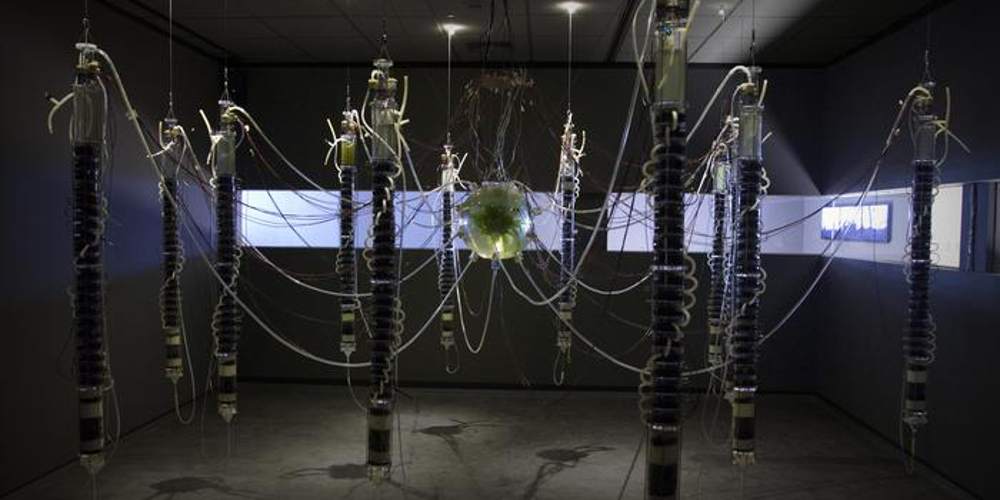
Here’s a close-up look at the technical and aesthetic state of the art. The CyberArts 2015 exhibition is one of the highlights of the Ars Electronica Festival.
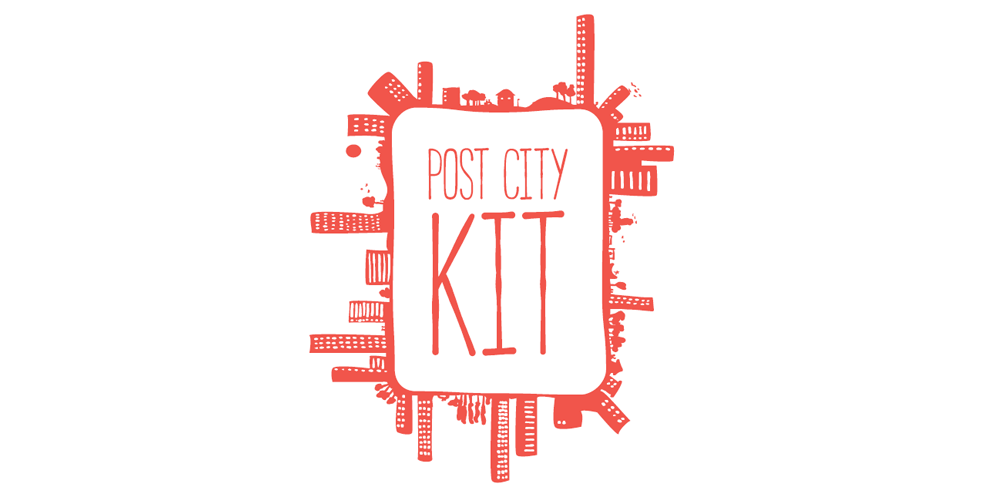
The Post City Kit Exhibition shows with numerous prototypes and project presentations possible development directions towards the urban habitats for the upcoming human generations.
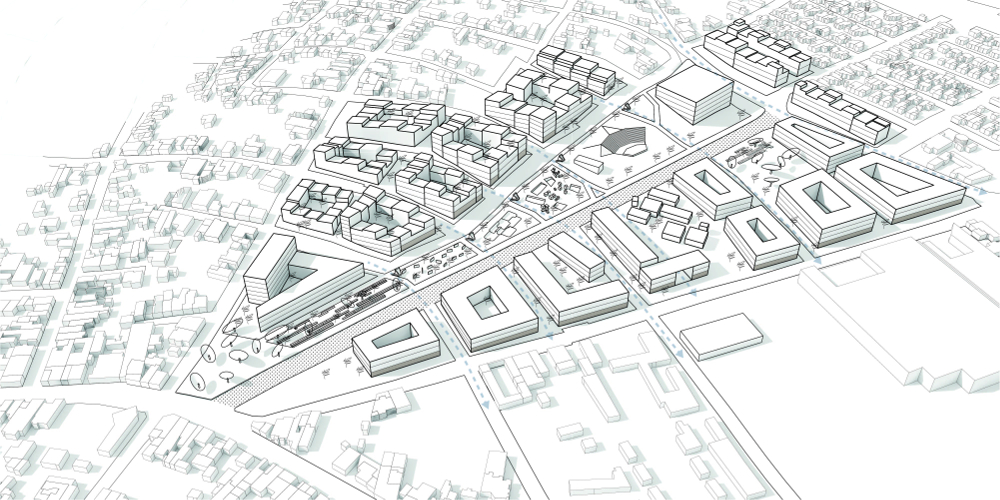
The Habitat 21 exhibition considers the process of urbanization going on worldwide.
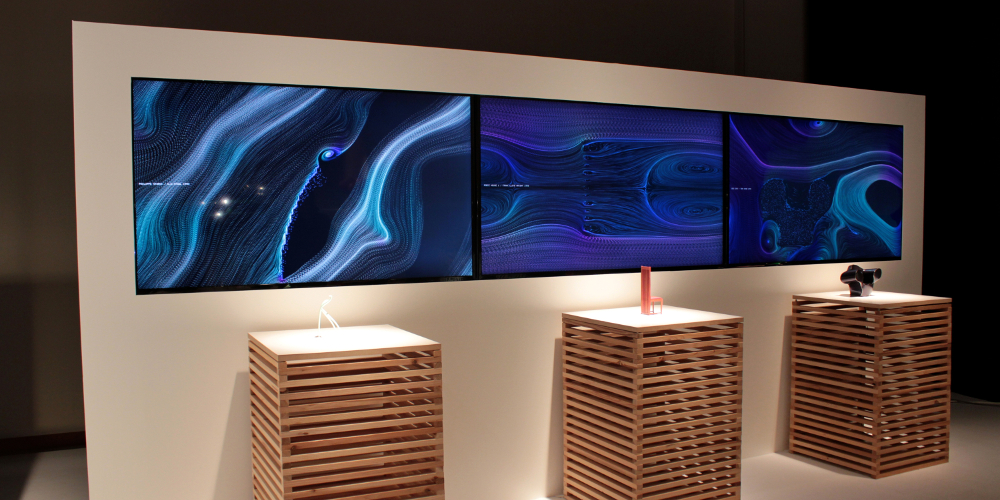
The Elements of Art and Science exhibition contains outstanding artistic and scientific works.
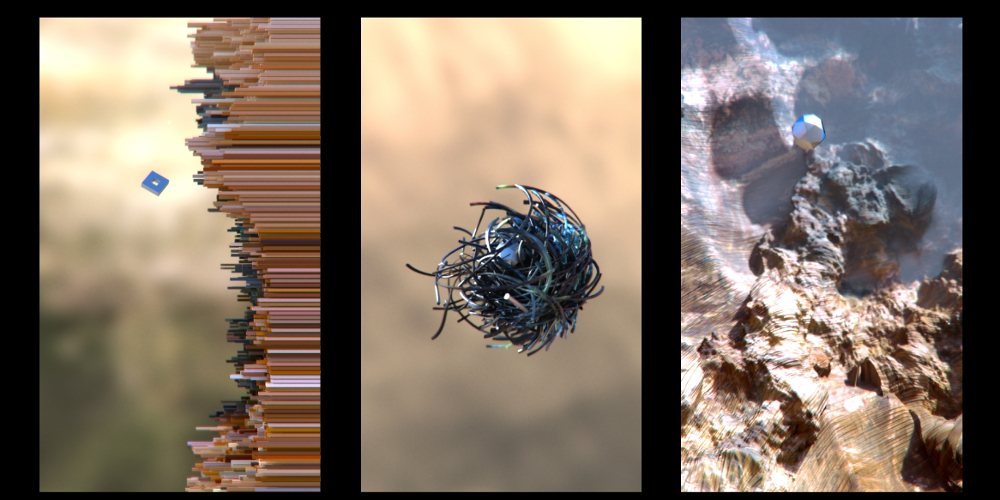
The Campus Exhibition by Paris 8 University presents thirty years of digital research and creative work from pioneering artists and researchers in the early years as well as from young contemporary artists today.
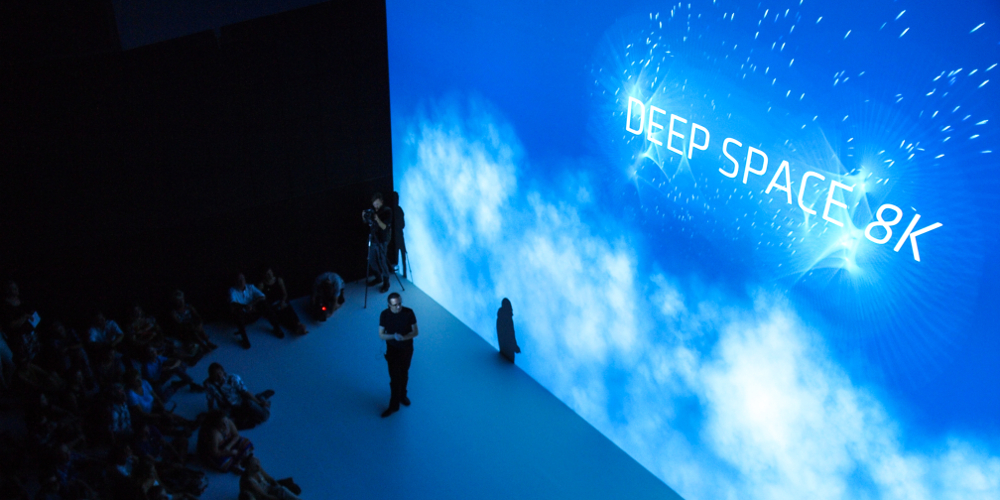
Now, in 2015, Deep Space has been taken to the next level.
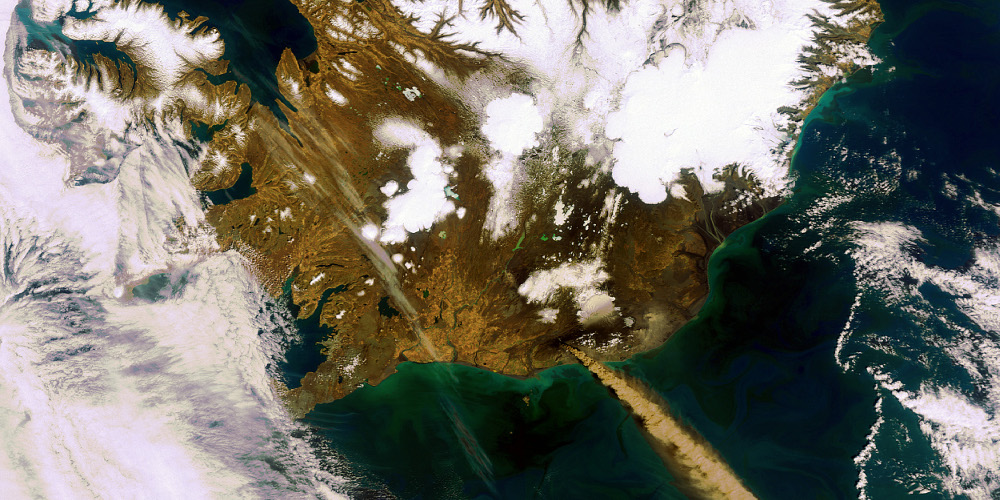
Spaceship Earth focuses on satellite images and the incredible depth of information inherent in these astonishing pictures, as well as artistic interpretations of their themes.
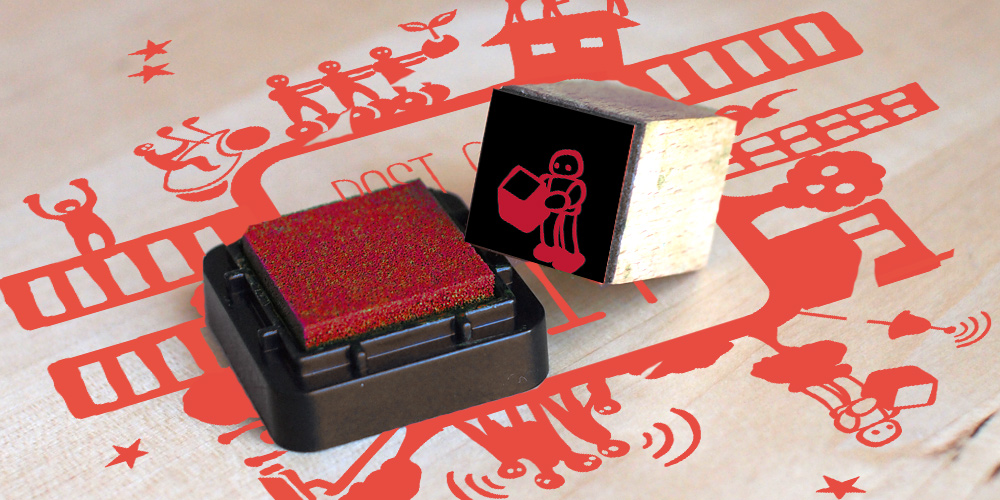
Immerse yourself in the festival, collect stamps and use them to design your own PostCity postcard!
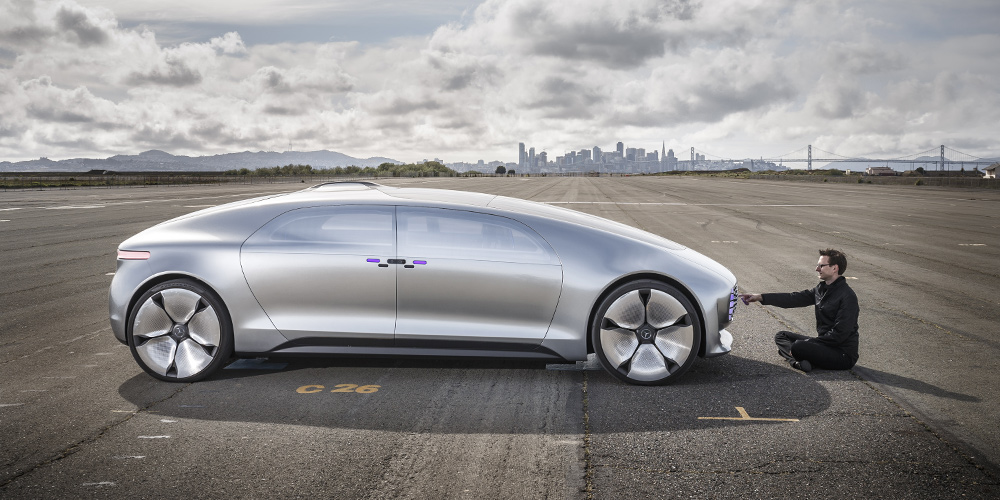
The F 015 not only represents the technical realization of autonomous driving. It also shows how self-driving cars are going to change our society as the automobile moves beyond its role as a means of transportation to become a mobile living space.
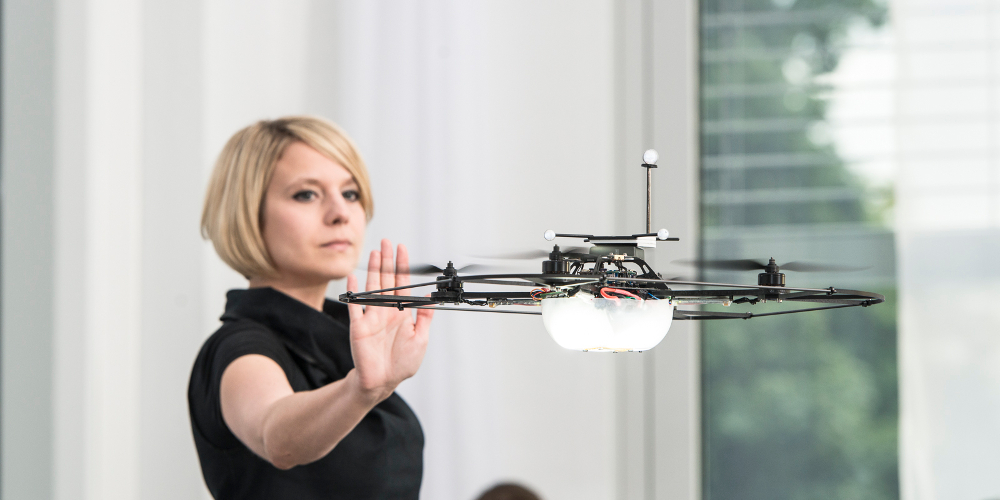
Shared Space Spaxels lets people experience robotic mobility with the help of three quadcopters.
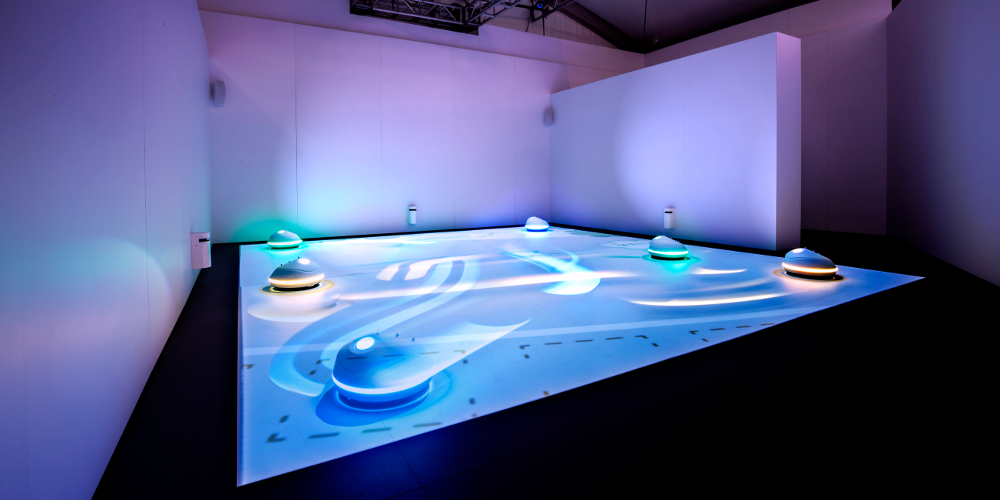
In Shared Space Bots, specially developed robots are the protagonists of experiments in human-automobile interaction.
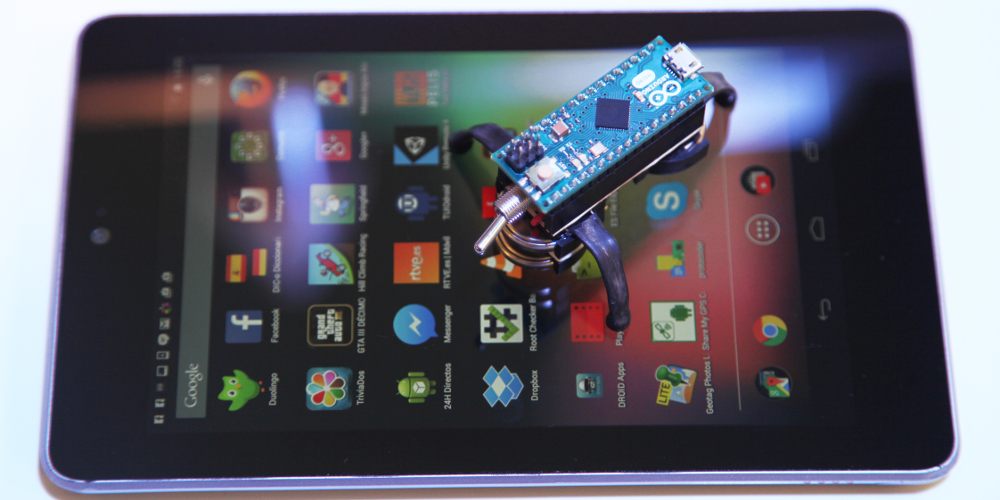
This year’s Interface Cultures student project exhibition constitutes a provocative answer to the new post-media trends. The projects presented are futuristic, retro, post-, pre-, post-post or just art.
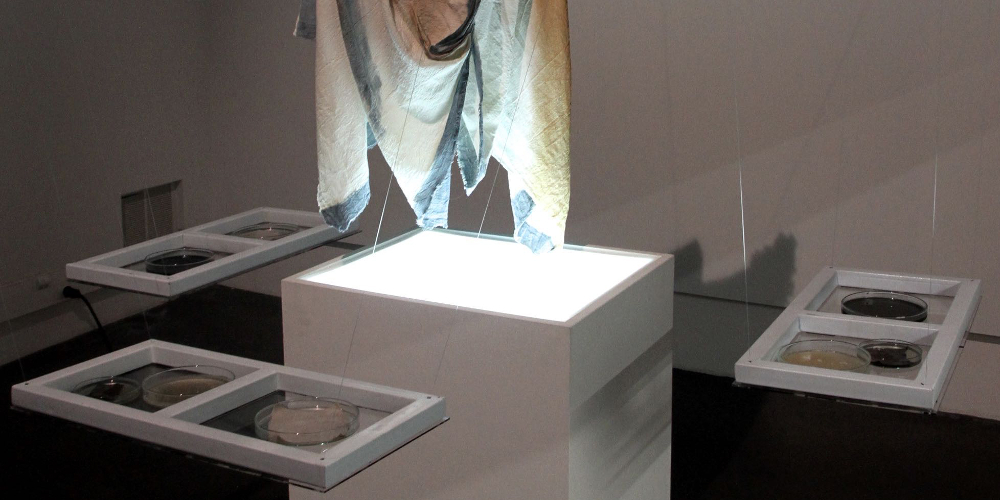
(Deutsch) Mit dem künstlerischen Forschungsprojekt Soya C(o)u(l)ture hat XXlab (ID) ein Verfahren entwickelt, Nützliches aus dem bei der Sojaherstellung anfallenden Flüssigabfall zu gewinnen.
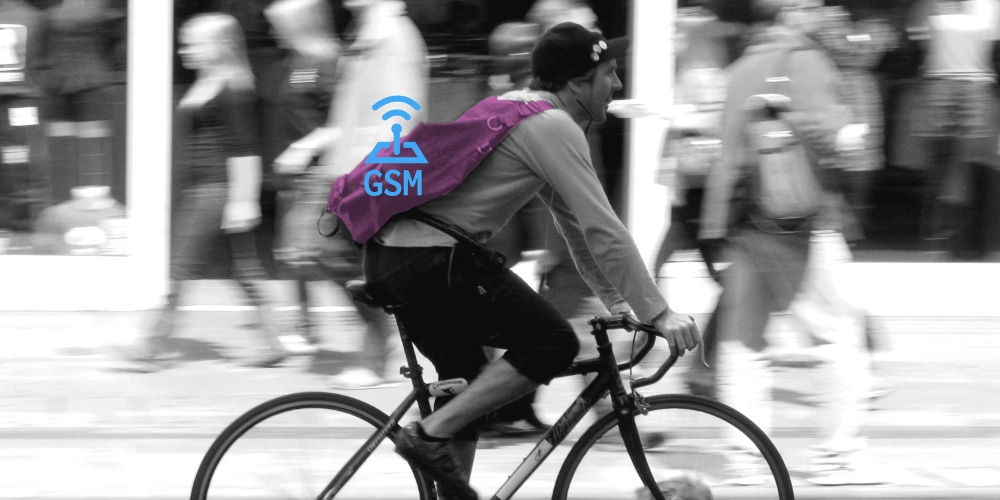
False Positive deploys text messaging, stealth infrastructure, street intervention, and data visualization to enact a surveillance conspiracy engaging the public in an intimate, techno-political conversation with the mobile technologies on which they depend
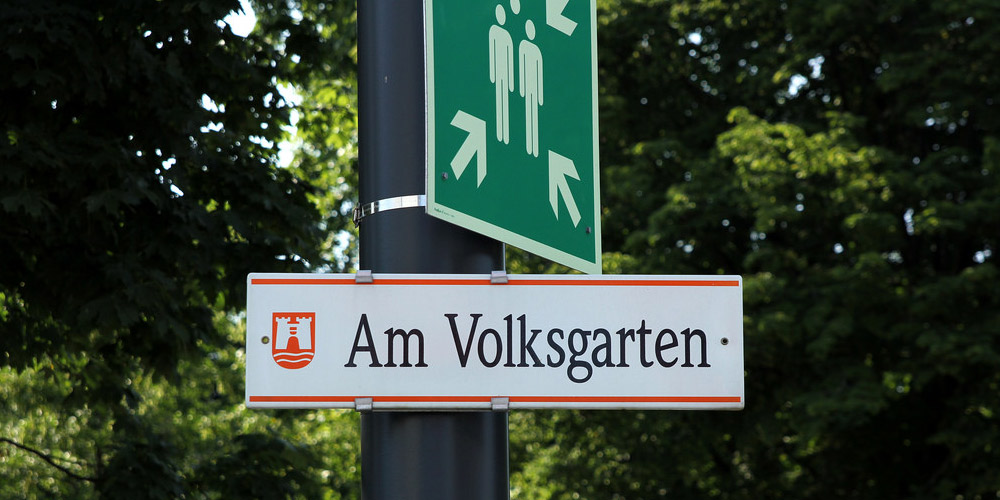
In conjunction with the 2015 Ars Electronica Festival, South African artists Marcus Neustetter and Stephen Hobbs are focusing on Volksgarten. Their “Renaming the City” project invites folks living in Linz to name a route on which lots of us love to stroll—the main promenade through Volksgarten.
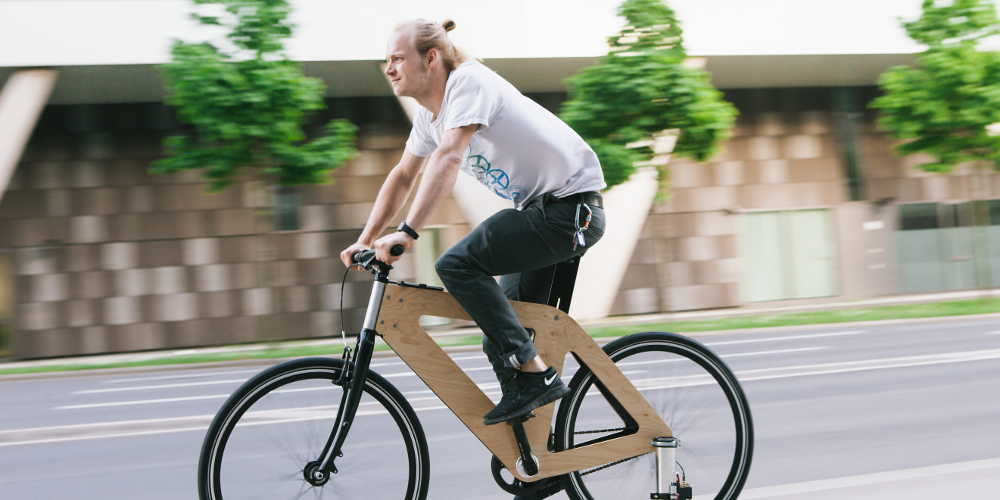
ESEL-Complain shows opportunities and the potential provided by the use of bicycles in public spaces.
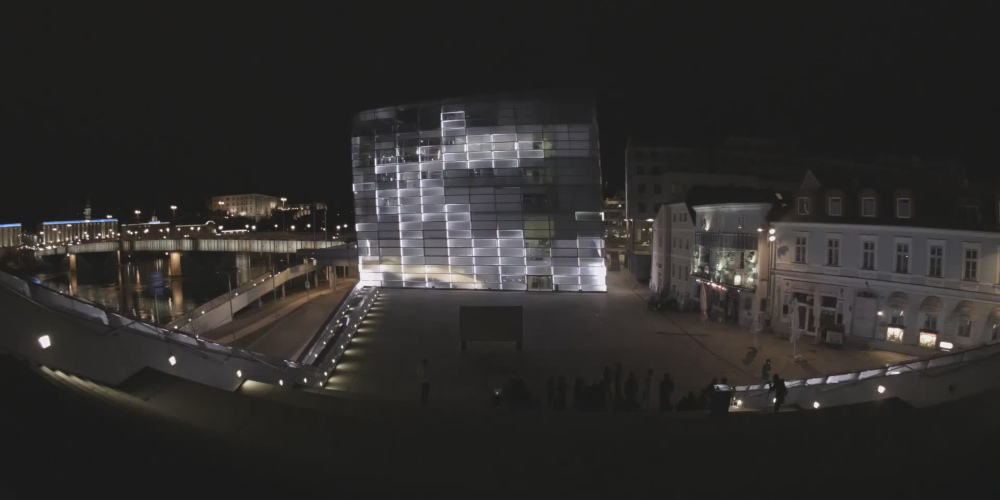
Urban Entropy is a public display of complaining and repair, a drama of maintenance and things that do not work.
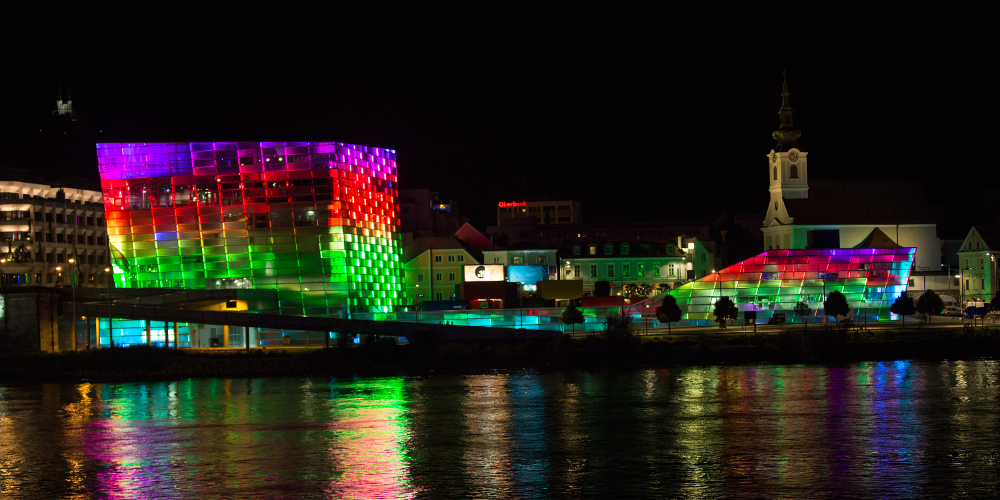
The projects by Connecting Cities Network aim to establish urban media façades as open platforms for citizens to engage in participatory city-making processes.

Produced under the auspices of the European Commission’s Directorate-General for Neighbourhood and Enlargement Negotiations, “So similar, so different, so European” is a campaign that addresses the enlargement of the European Union.
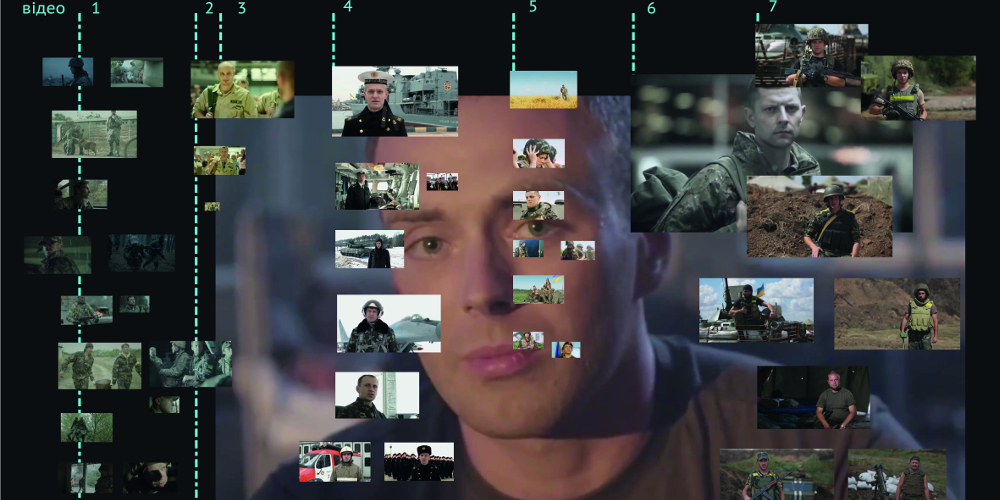
Mythogenesis embodies the observations of a new media researcher. Its purpose is a visual analysis of propaganda videos that have become a source of the mythogenesis process of the new Ukrainian hero.
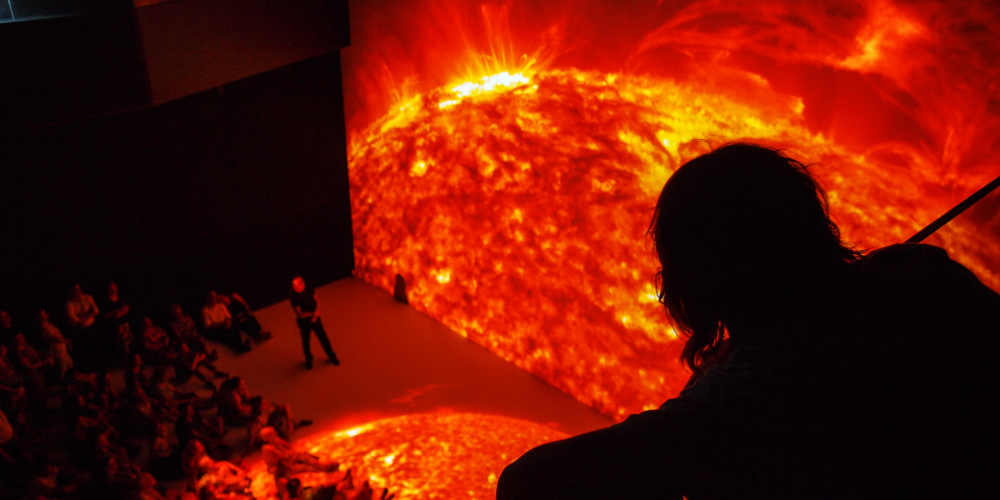
The very best of the regular Deep Space 8K–Program.
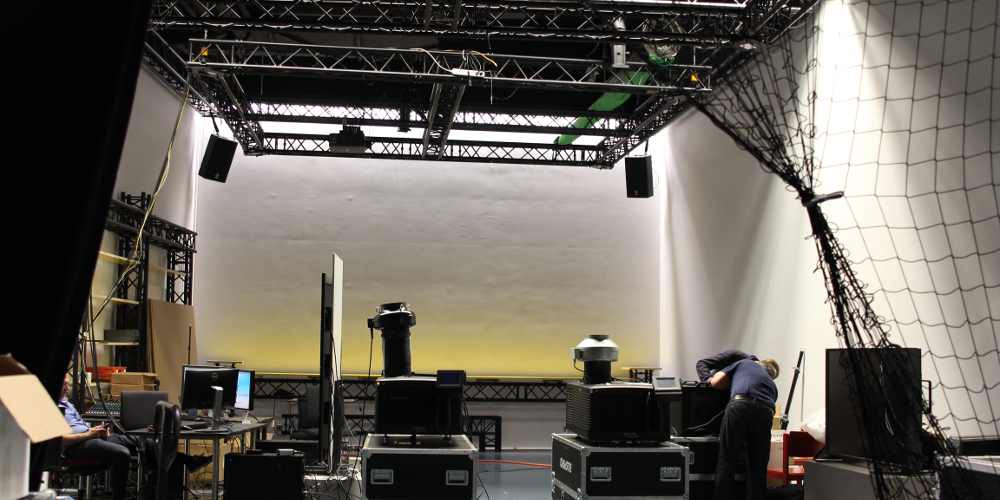
As much sophisticated knowhow on the part of Ars Electronica Futurelab engineers went into the conception of Deep Space 8K as high-performance technology went into that concept’s execution.
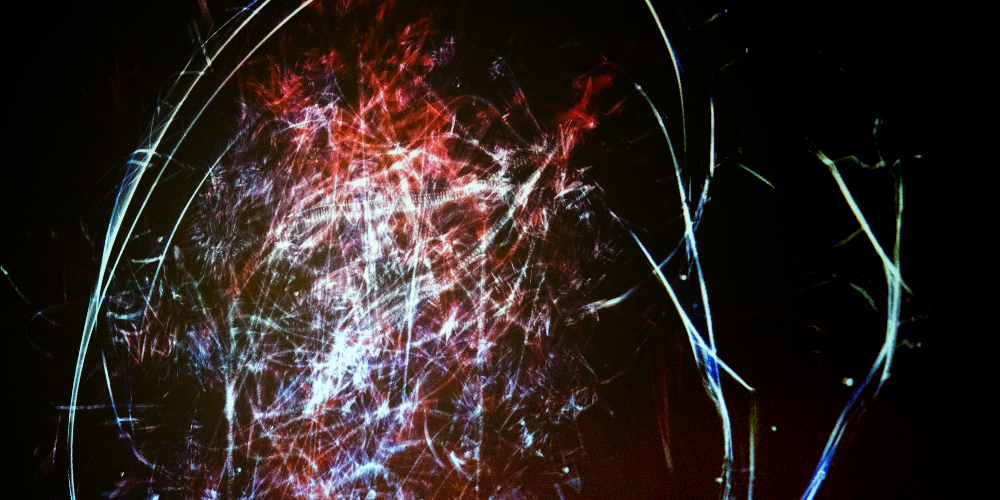
The Soul of the Cube (SOTC) is a virtual being, an abstract creature that is visible in between applications, it is both a “host” and the inner self of its complex infrastructure.
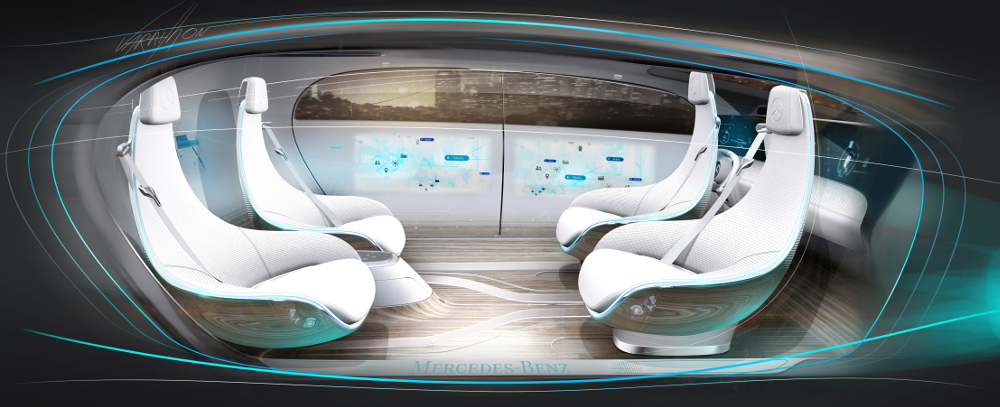
New mobility concepts, trailblazing interfaces, the language of forms and the future of brand identity will be the subjects of talks by Vera Schmidt (DE) and Holger Hutzenlaub (DE).
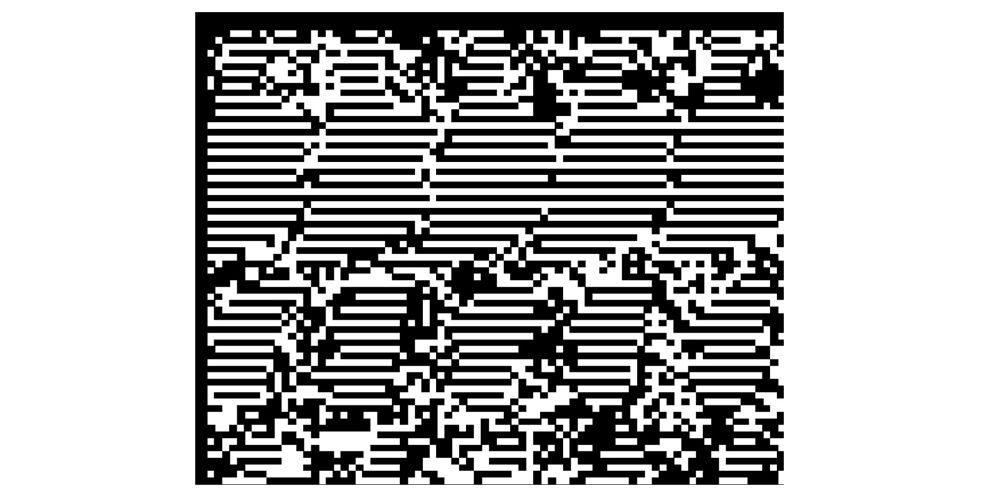
The works singled out for recognition this year that are being presented at the 2015 Ars Electronica Festival explore the aesthetic-artistic latitude the teletext provides.
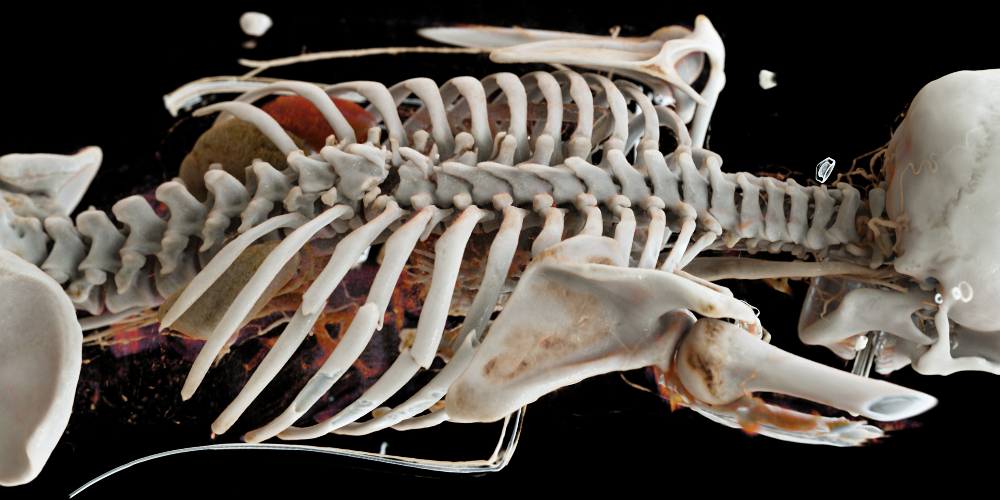
On the basis of physical fundamentals, Siemens has developed an innovative rendering algorithm that provides superbly detailed, photorealistic images.
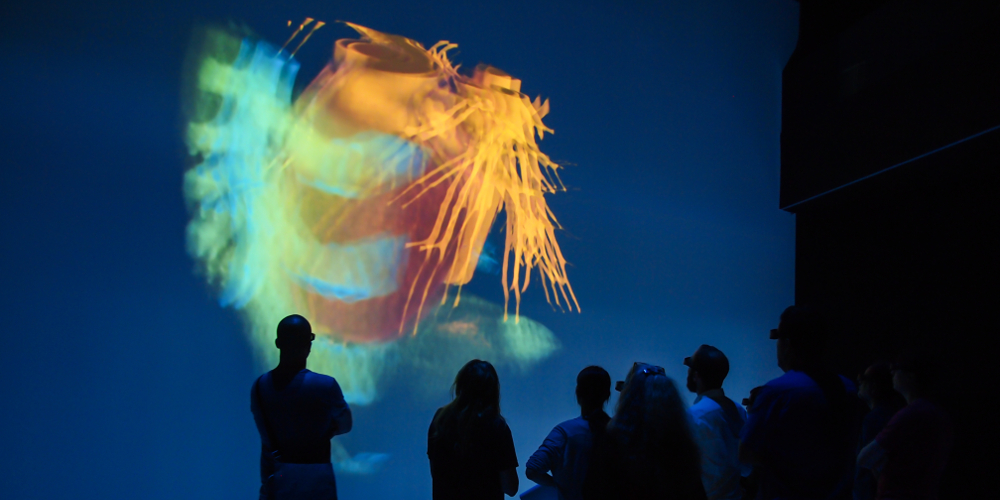
In this presentation, Matthias Günther (DE) of the Fraunhofer Institute for Medical Image Computing (MEVIS) focuses on the function of the heart.
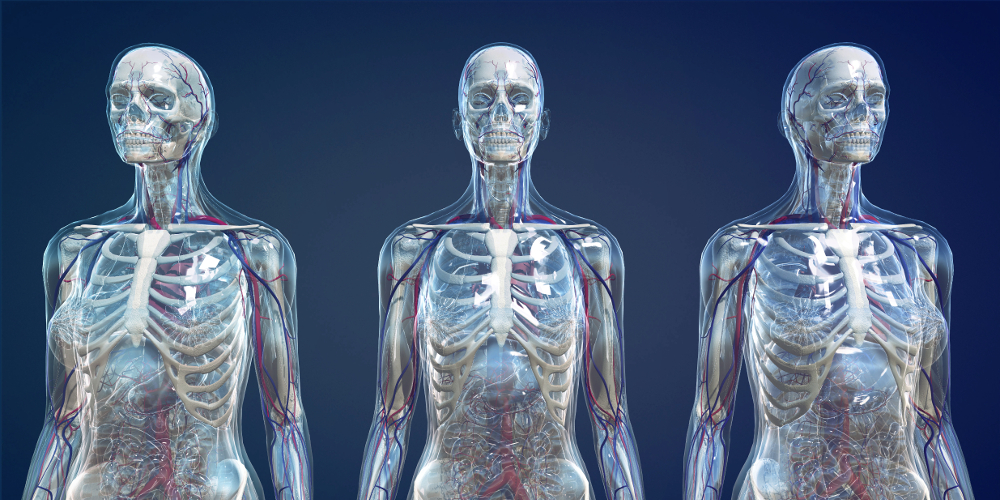
An application developed by the Ars Electronica Futurelab transforms Deep Space 8K into a virtual anatomy theater in which viewers can observe the human body in 3-D.
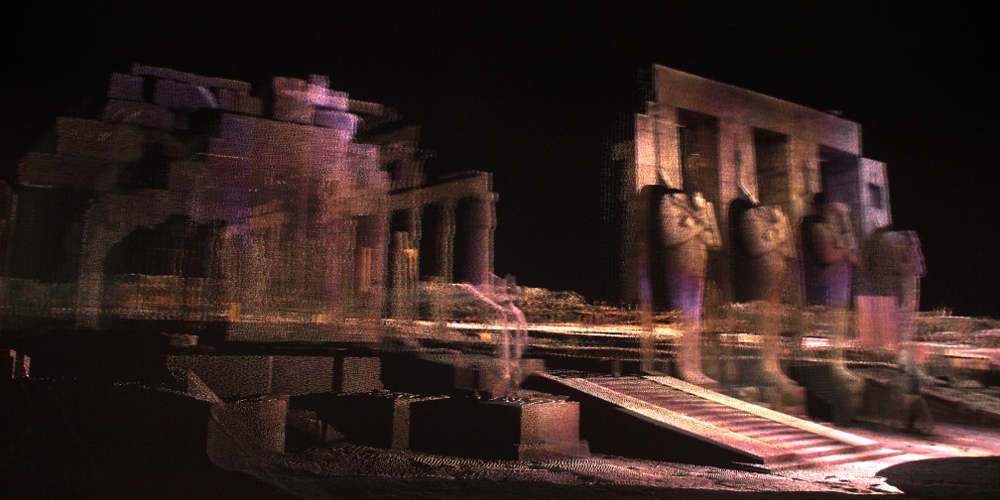
Deep Space 8K now lets visitors behold virtual reconstructions of historical sites in 3-D and walk through them in the truest sense of the word.
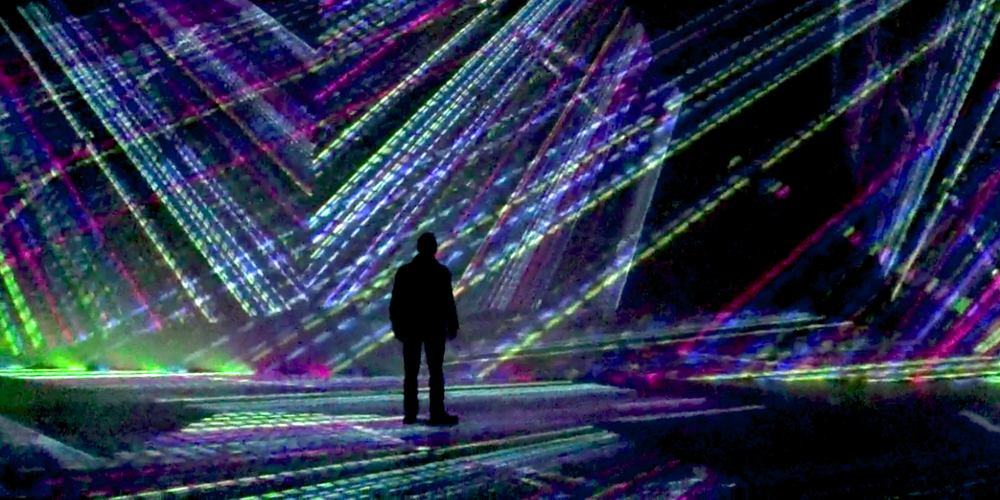
*White Point* is based on the premise that the observer is situated in the vanishing point. Visitors thus seem to move into the center of the light inside this single pixel
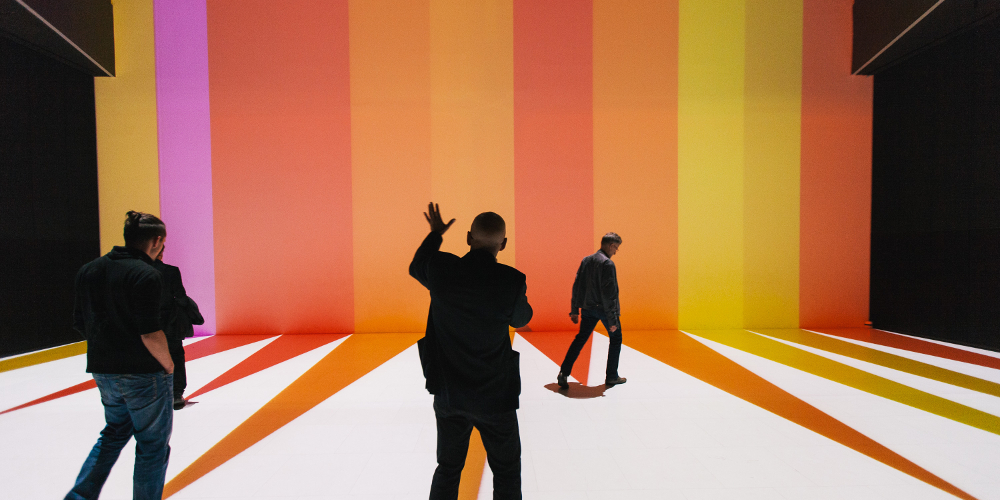
All three works are takes on “cooperative aesthetics” in which visitors to Deep Space 8K explore the changes their own movements bring about in the displayed projections and, in some instances, on the acoustic level too.
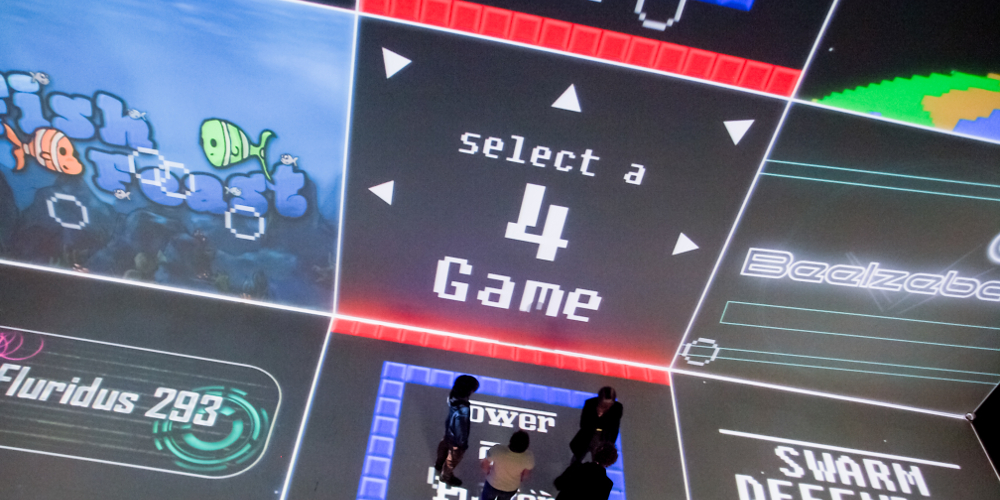
GameSpace turns the Ars Electronica Center’s Deep Space 8K into an interactive multiplayer gaming arena.
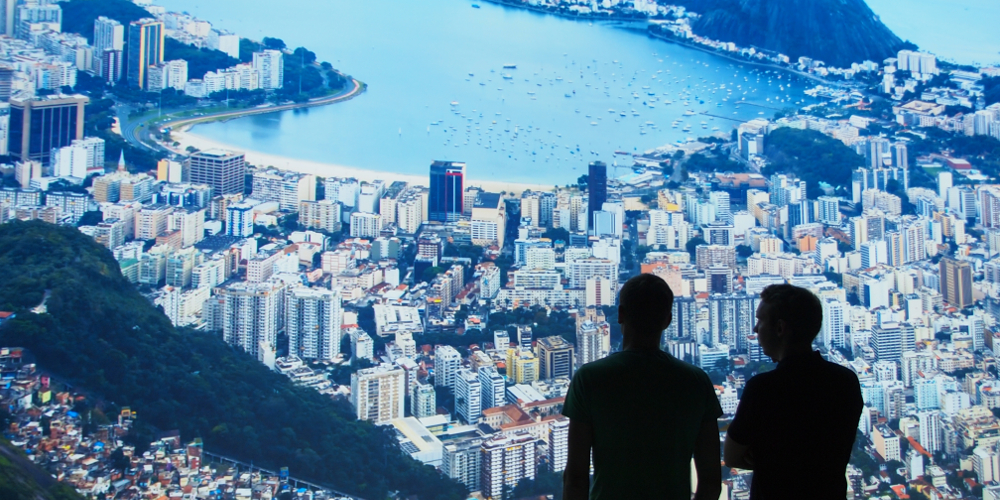
Combining highly detailed, fast-forward motion pictures with the extraordinarily high degree of resolution in Deep Space 8K opens our eyes to everyday events that we’ve never seen in this form before.
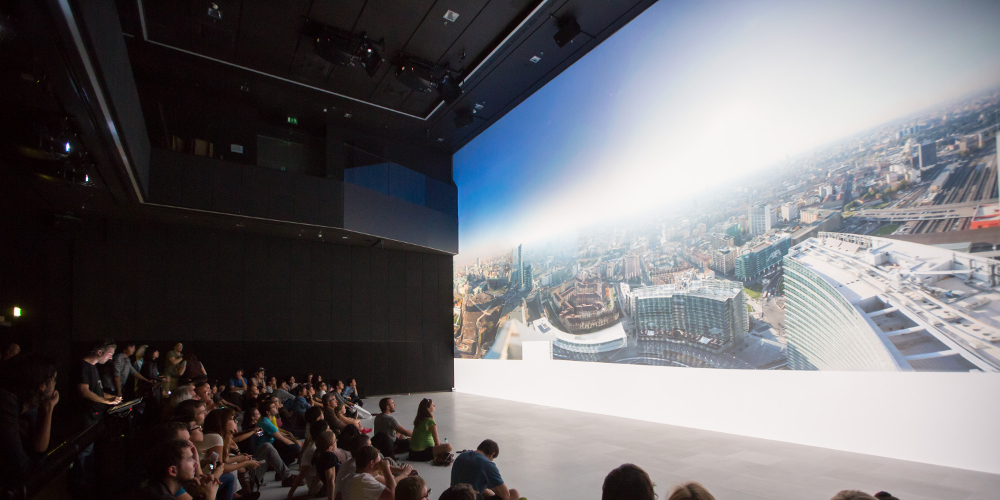
Jeffrey Martin specializes in creating photos of cities, usually shot from the top of a tower or skyscraper.
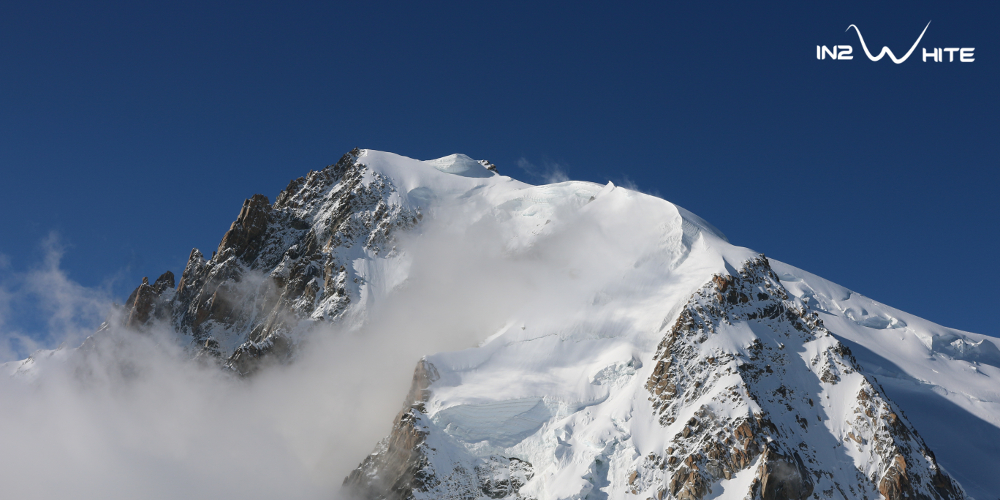
In2White is a personal homage by photographer Filippo Blengini (IT) to the glacier-and-snow-covered realm of the white mountain: Mont Blanc.
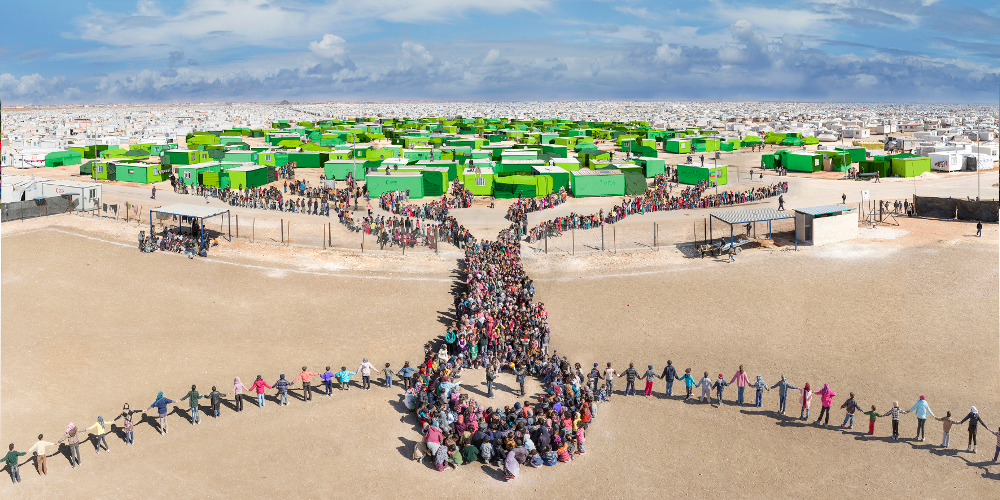
*Post Refugee City* records the realities of everyday life in a refugee camp—in this case, Al Zaatari in Jordan—and represents an effort to find new ways to deal with such modern-day mass migration.
In 2015 the Austrian Motorist and Touring Club ÖAMTC approached the University of Art and Design Linz, asking students and teaching staff members to reflect on how mobility will change in the future.
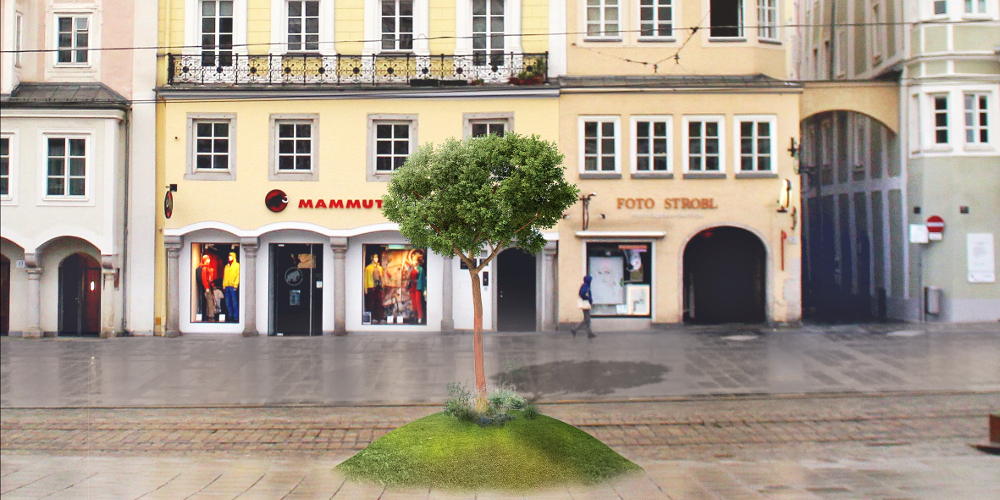
Mobile Ö1 Atelier at the Main Square of Linz.
Volume is a sound installation that doesn’t just encourage visitors to consider these questions; it also sharpens their aural perception.
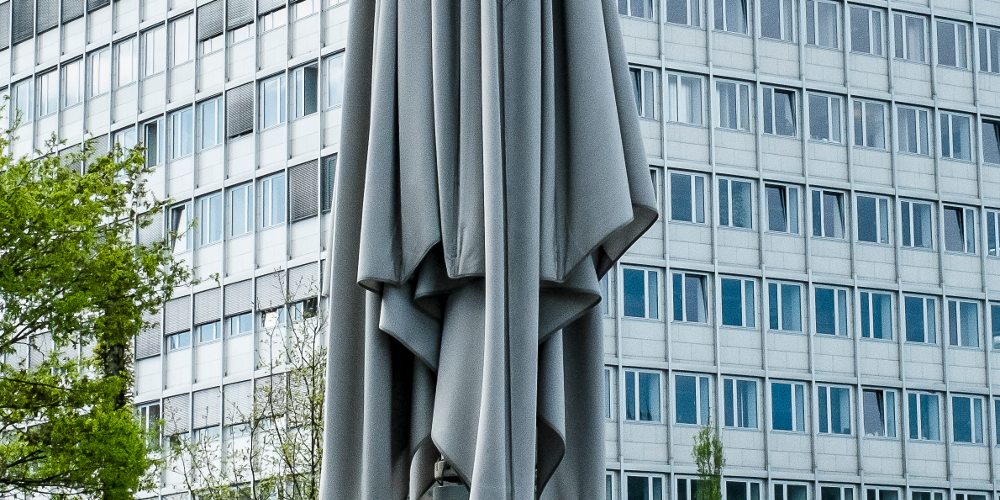
Reassuming the role of the photographer as a kind of post-flaneur, Andreas J. Hirsch casts personal views on the city reflecting the post-urban condition as such.
In the Brucknerhaus, Bildrecht and Ars Electronica present Michael Kos’ Mappings in which the artist takes conventional ways of viewing cartographic works and city maps and turns them on their head.
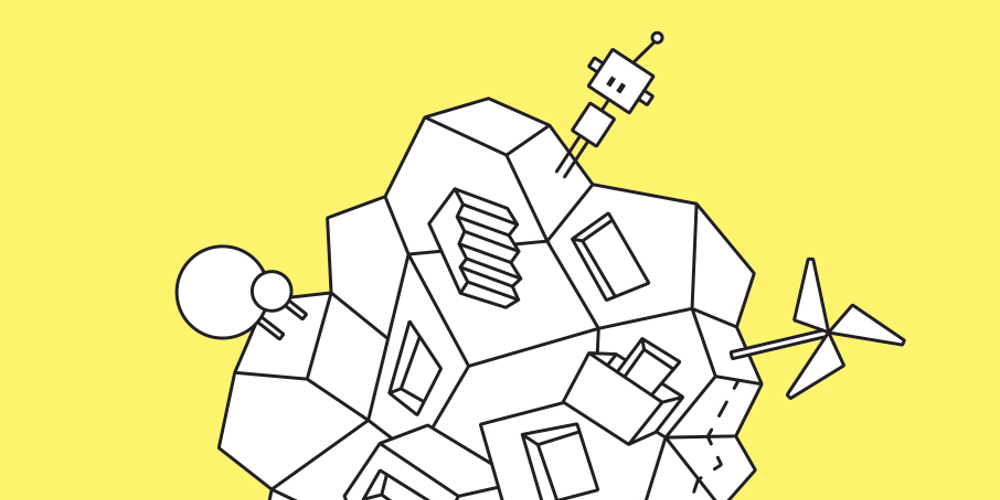
“Superscape” is a biennial Austrian architectural prize. Its mission is to spotlight innovative architectural concepts for the interplay of private and public spaces in an urban context.
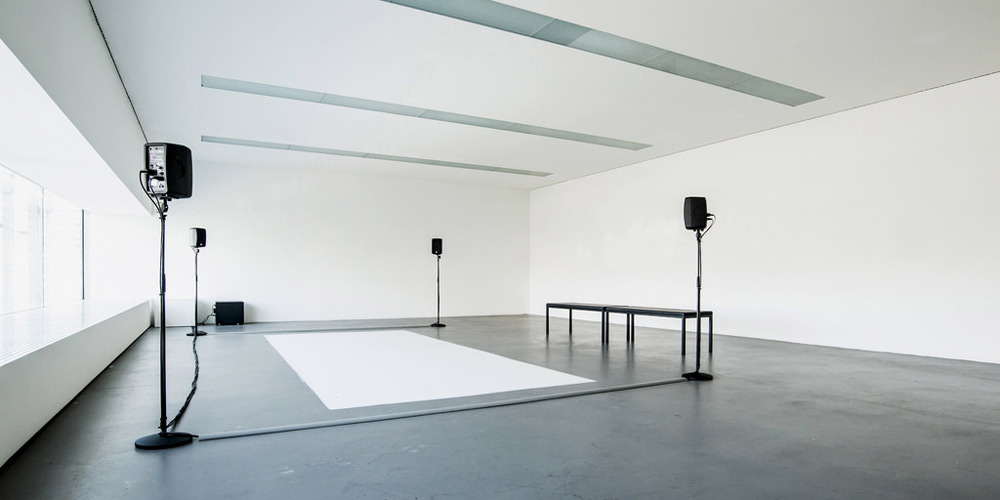
Ars Electronica and the LENTOS Art Museum have been jointly presenting contemporary media art for years now. The 2015 show is Listening Post by musicians/sound artists Robert Lippok (DE) and Wolfgang Fuchs (AT).
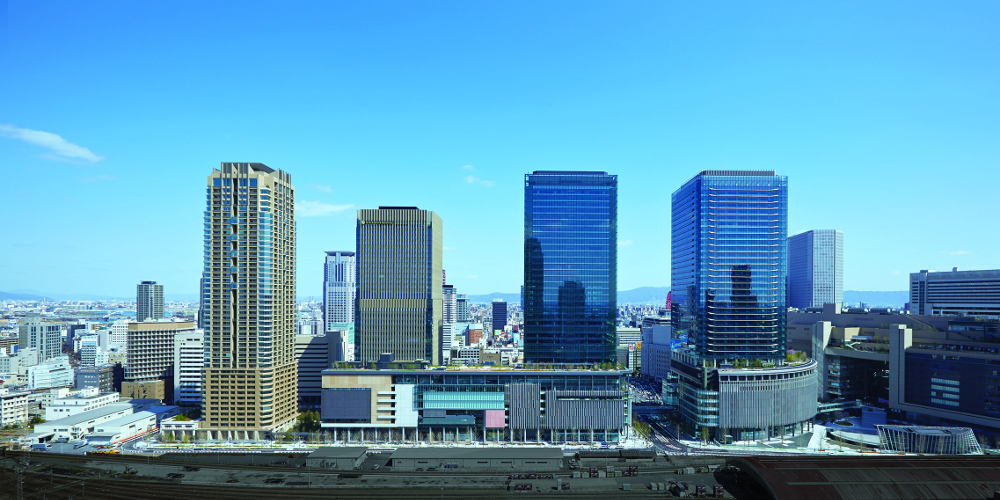
Knowledge Capital is a center for the creation of new intellectual values through interaction and collaboration, and a core facility at Grand Front Osaka established by private companies, the multi-purpose complex of commercial facilities, offices, hotel and service apartments.
iHome / personal home wants to be the continuation in the gesture-interaction of human beings with spaces, to a life with partner-like living spaces.
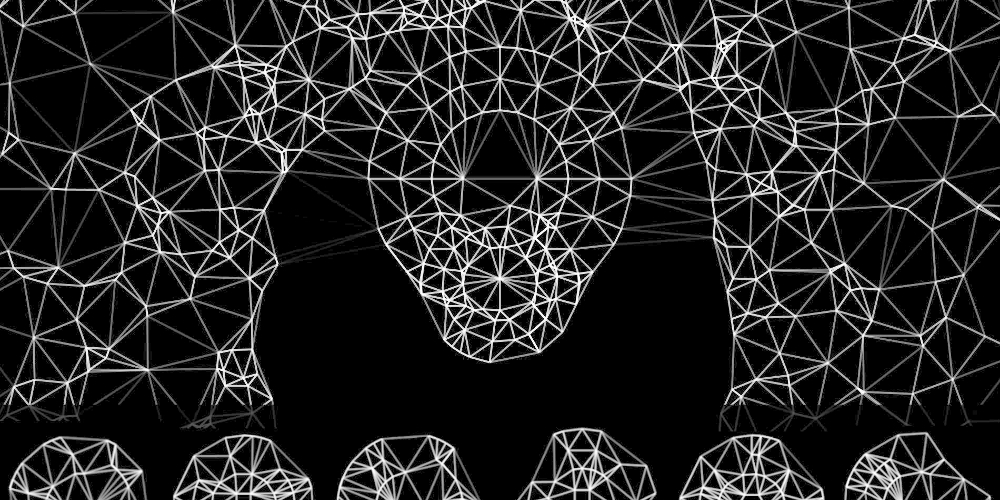
Hyungjoong Kim created Jangdna (Korean: rhythm), an interface that not only analyses and visualizes an audible piece of music, but also makes it modifiable in a very simple way.
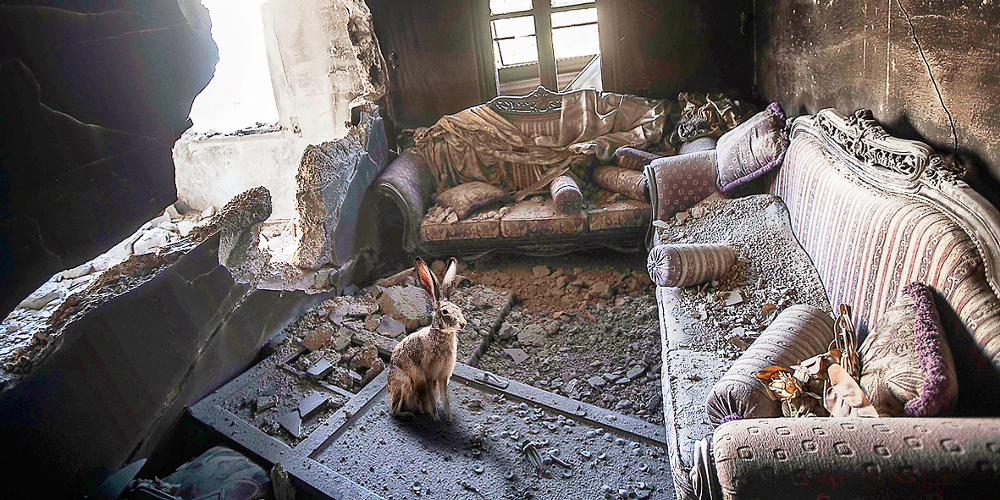
The Alfred Fried Photography Award is more than just a photo contest; it’s the world’s only competition that asks entrants to visually answer the question of what peace looks like.
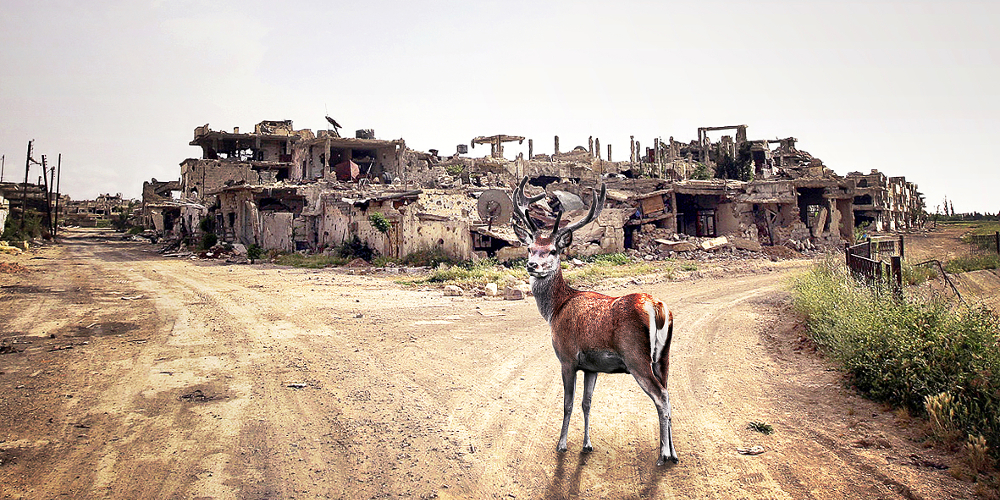
The Alfred Fried Photography Award is more than just a photo contest; it’s the world’s only competition that asks entrants to visually answer the question of what peace looks like.
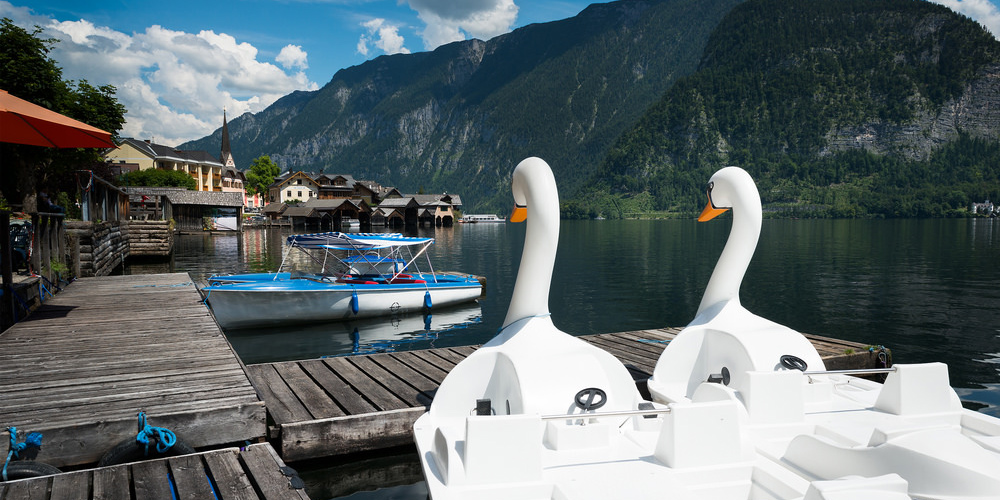
Artist Norbert Artner’s high-quality photographs taken between 2010 and 2014 recorded the process of reflection involving the two Hallstatts in Austria and in the southern Chinese Province of Guangdong.
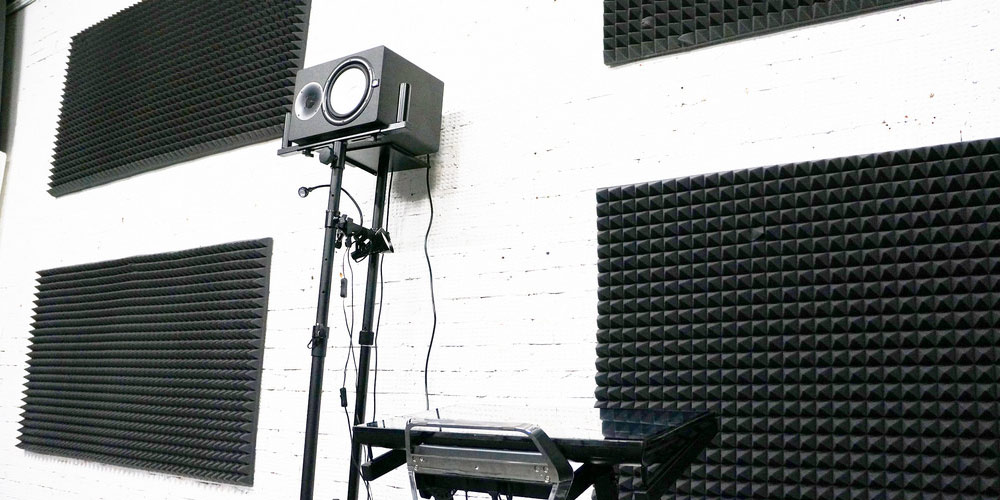
The Russian Sound Art Showcase is a spatialtechnical ambience set up near the SoundArtist Platform for the presentation of what’s happening now in the Russian sound art scene.
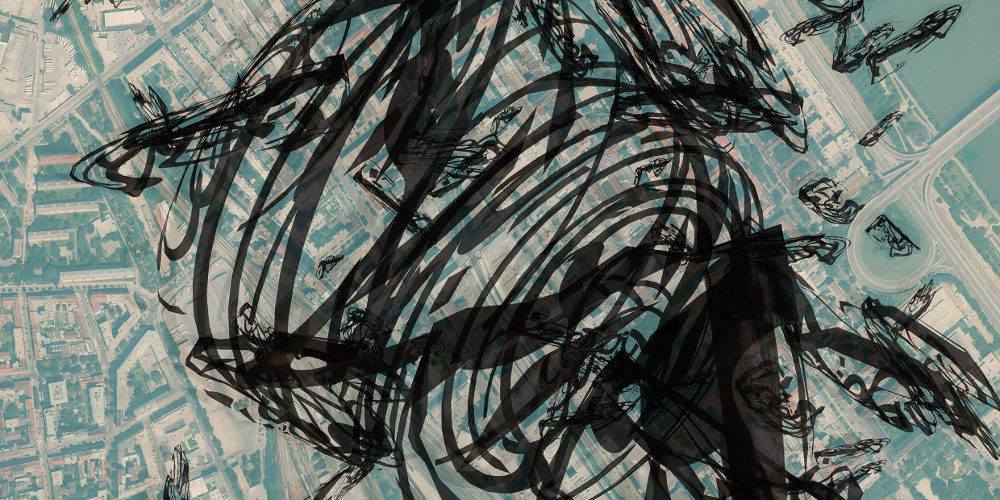
The series Form/Code/Maps: Air Corridors“ consists of twenty 81×107 cm lenticular images
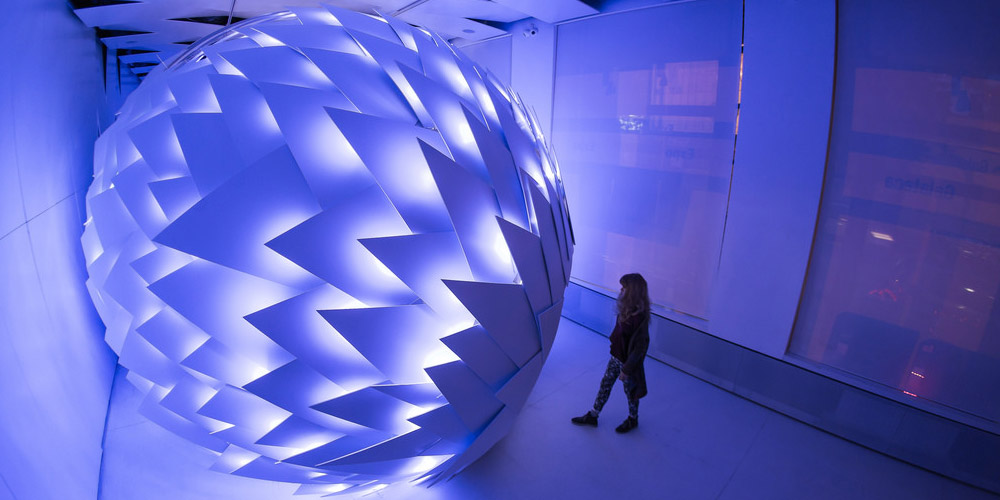
With a self-ironical approach, the project is calling the subjects of the monstrous and perpetually insatiable Tra to her feeding ritual.

POST CITY will host a pop-up exhibition that’s the outcome of the Summer Sessions of V2.
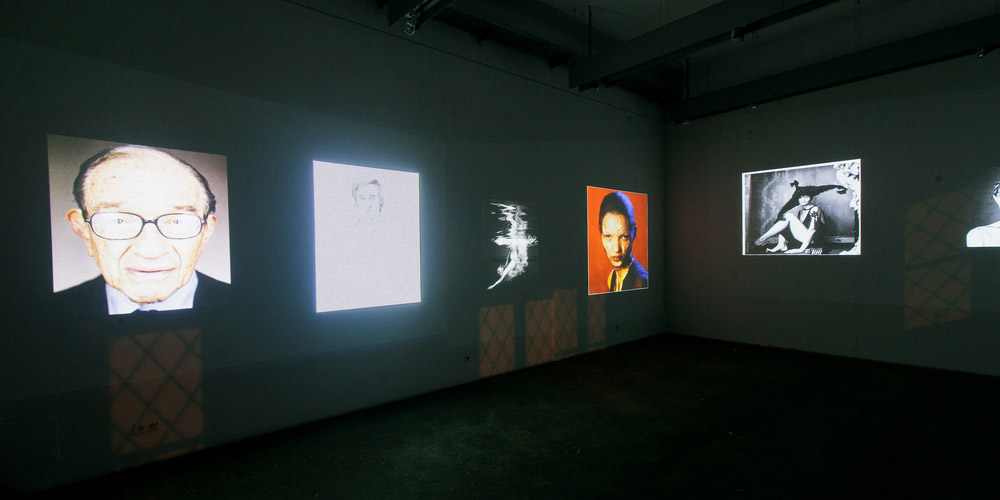
exhy curates exhibitions–automatically. The curation service offers to organize art events from finding a topic and a title to putting together a group show and arranging the works of art in the gallery space.
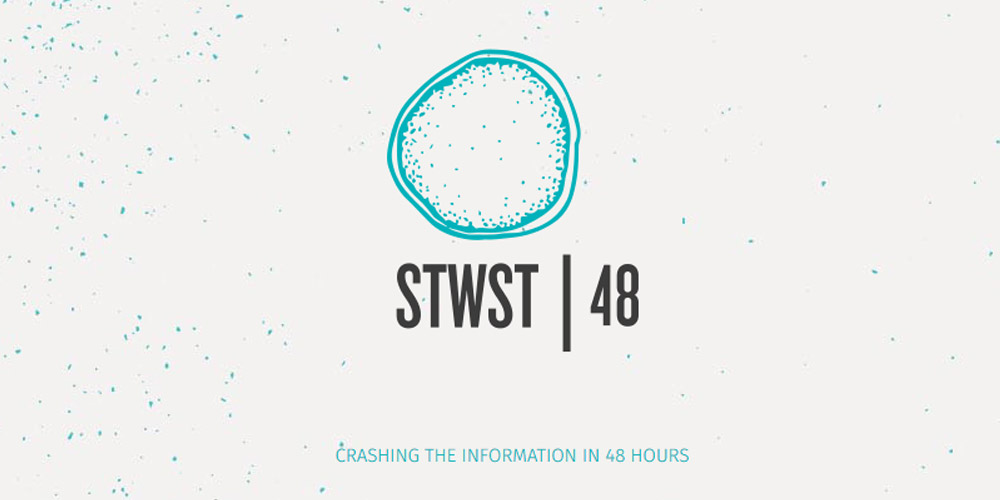
STWST48 – crashing the information in 48 hours brings together events/non-events, information/non-information, hack/fab labs, reality/dreams, unfiltered/raw/random/mined/cooked/processed infodata.
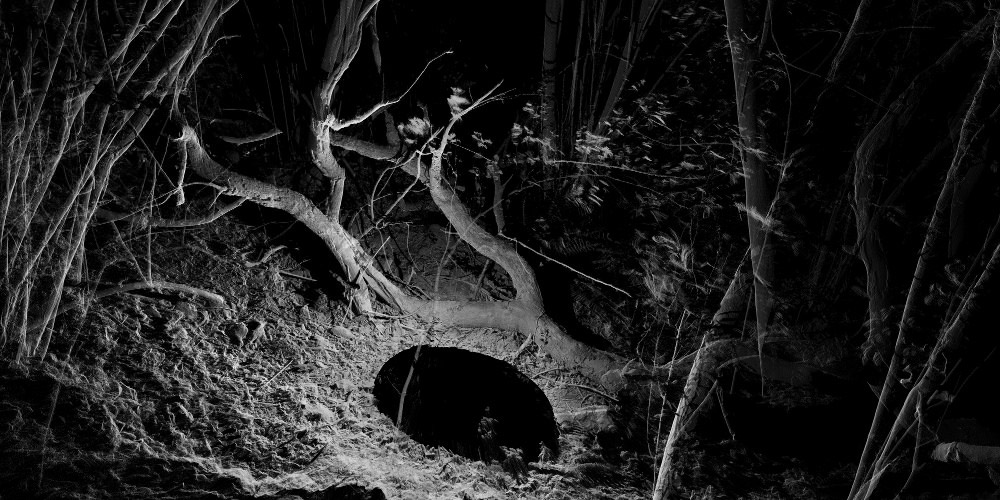
The NAKED VERITI project uses memory, interaction and light, and composite and manufactured parts to express feelings and thoughts about technological art.
The Myriads project created for Ars Electronica by Human Ecosystems and Ubiquitous Commons establishes a peer-to-peer ethnography of the city.
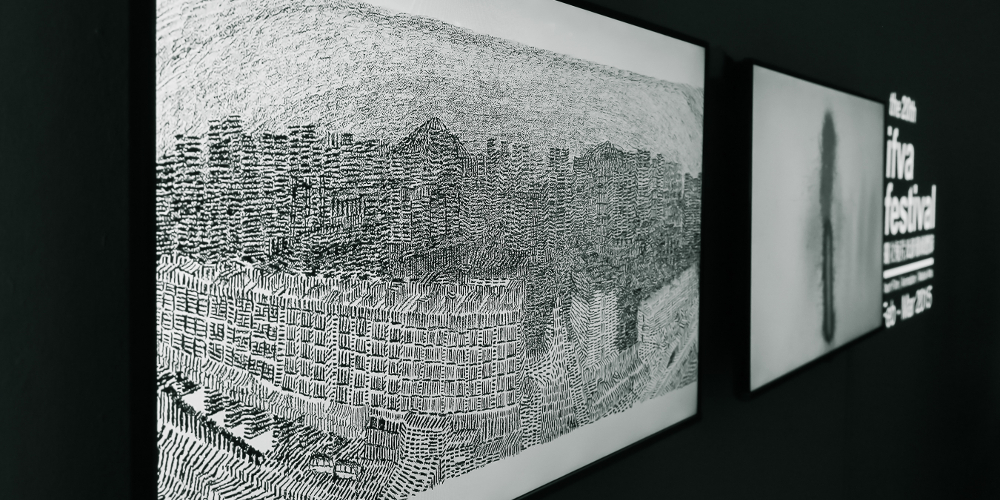
The Fading Piece, her work that was also singled out for recognition as the best local entry, is a two-part stop-motion animated film that traces—in the truest sense of the word—the disappearance and reconfiguration of Kwun Tong Town Centre.
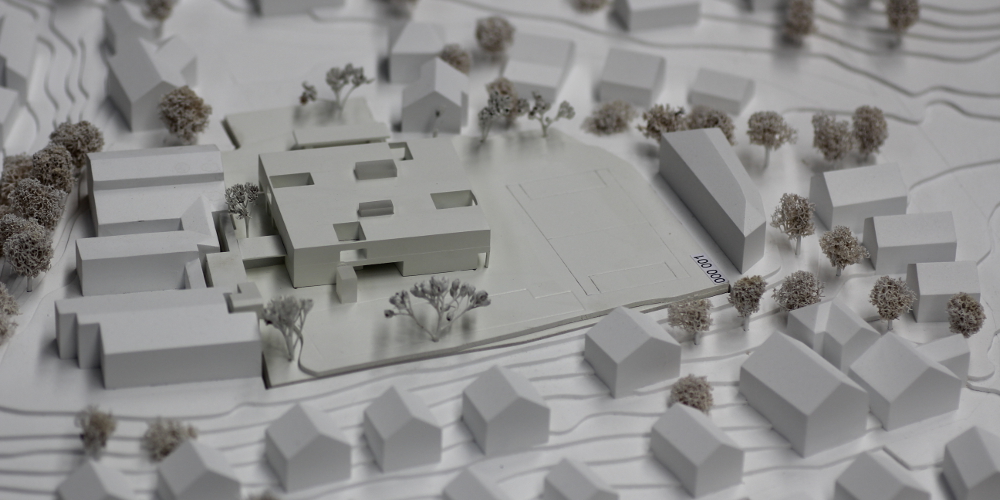
1,001 Models brings together a splendid array of works by Austrian architects and urban planners, regardless of whether their concepts were actually built or only proposed.
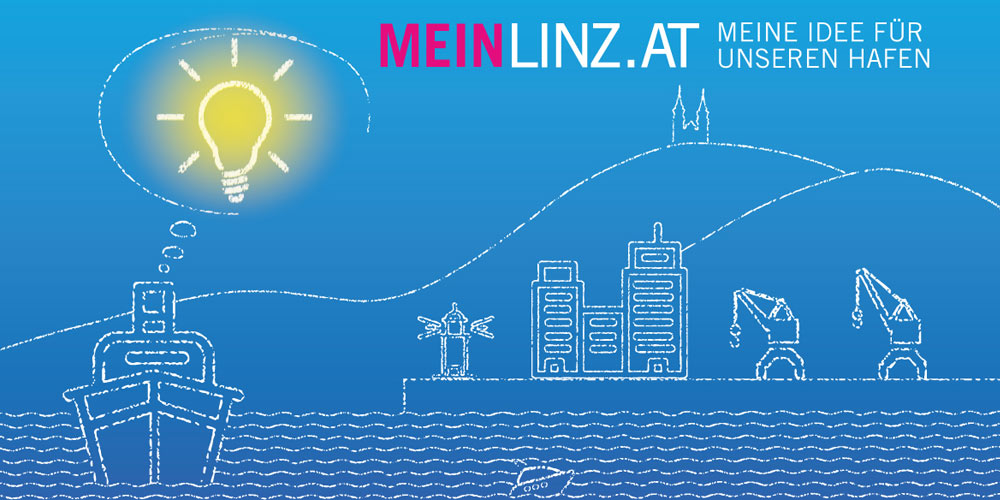
A total of 140 “brainstorms”, 480 comments from 776 Linz fans – that is the outcome of the Austria-wide unique online service www.meinlinz.at. Experts from the City of Linz and the LINZ AG examine the ideas for their feasibility.
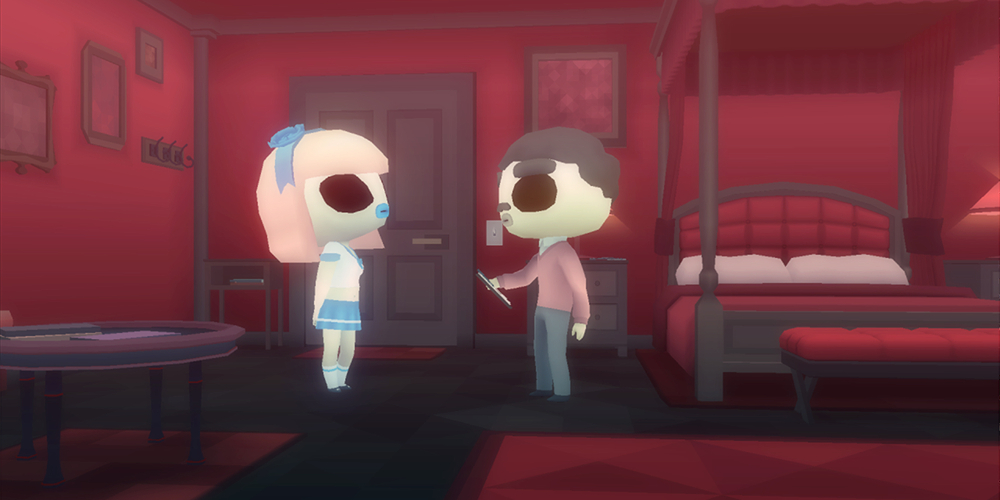
Two web-based interactive winning works of Prix Ars Electronica 2015 – Computer Animation / Film / VFX category are exhibited at an interative station at the entrance of Central.
























































